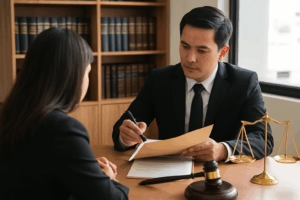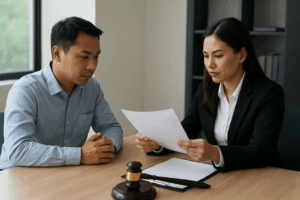In the bustling world of social media, where every moment is captured and shared with the world, influencers hold immense power in shaping trends and influencing consumer behavior. However, amidst the whirlwind of content creation, it’s crucial for influencers operating in Thailand to prioritize privacy laws to avoid legal pitfalls. With strict regulations governing the protection of individuals’ privacy rights, understanding and adhering to these laws is paramount. In this in-depth guide, we’ll explore the intricacies of privacy laws in Thailand and offer essential insights for social media influencers, emphasizing the importance of partnering with a reputable Bangkok law firm to navigate privacy issues effectively.
Understanding Privacy Laws in Thailand
Privacy laws in Thailand are primarily governed by the Thai Constitution, which guarantees the right to privacy for individuals. Additionally, the Personal Data Protection Act (PDPA), enacted in 2019, regulates the collection, use, and disclosure of personal data, imposing strict requirements on businesses and organizations handling personal information. Key aspects of privacy laws in Thailand include:
Right to Privacy: The Thai Constitution recognizes the right to privacy as a fundamental human right, protecting individuals from unwarranted intrusions into their private lives.
Personal Data Protection Act (PDPA): The PDPA sets out comprehensive rules and regulations governing the processing of personal data in Thailand. It applies to both public and private sectors and imposes obligations on data controllers and processors to ensure the lawful and fair treatment of personal information.
Consent Requirements: Under the PDPA, obtaining consent is a fundamental principle for the collection, use, and disclosure of personal data. Individuals must be informed of the purpose of data collection and provide explicit consent before their data is processed.
Data Subject Rights: The PDPA grants individuals certain rights over their personal data, including the right to access, rectify, and delete their information held by data controllers. Data subjects also have the right to withdraw consent for data processing.
Sensitive Data Protection: The PDPA imposes stricter requirements for the processing of sensitive personal data, such as health information, religious beliefs, and biometric data. Additional safeguards must be implemented to protect sensitive information from unauthorized access or disclosure.
Common Privacy Concerns for Social Media Influencers
Social media influencers may encounter various privacy-related challenges in their content creation and promotional activities. Some common concerns include:
Filming or Photographing Individuals in Public Spaces: While individuals in public spaces have a lower expectation of privacy, influencers must still exercise caution when filming or photographing people without their consent. Overstepping boundaries or capturing sensitive moments without permission can lead to privacy complaints or legal issues.
Collecting and Using Personal Data: Influencers often collect personal data from their followers, such as names, email addresses, and demographic information. Ensuring compliance with the PDPA’s consent requirements and data protection principles is essential to avoid privacy violations.
Tagging and Identifying Individuals: Tagging or identifying individuals in posts without their consent can potentially infringe on their privacy rights. Influencers should respect individuals’ preferences regarding tagging and seek permission before associating them with specific content.
Sharing Personal Stories or Information: Sharing personal stories or information about others, even with good intentions, can breach their privacy rights. Influencers should obtain consent before disclosing sensitive or personal details about individuals in their content.
Working with Brands and Partners: Collaborating with brands and partners often involves sharing personal data or engaging in joint marketing efforts. Influencers should ensure that their partnerships comply with privacy laws and respect the privacy rights of their audience.
Navigating Privacy Risks with a Bangkok Law Firm
Given the complexities of privacy laws in Thailand, social media influencers can benefit significantly from partnering with a reputable Bangkok law firm specializing in privacy and data protection. Here’s how legal experts can help influencers navigate privacy risks effectively:
Legal Compliance: A knowledgeable attorney can provide guidance on compliance with privacy laws, helping influencers understand their obligations and implement necessary safeguards to protect personal data.
Privacy Policy Review: Legal professionals can review and update influencers’ privacy policies to ensure compliance with the PDPA’s requirements and accurately reflect their data processing practices.
Consent Mechanisms: Attorneys can help influencers develop robust consent mechanisms for collecting and processing personal data, ensuring that consent is obtained lawfully and documented effectively.
Data Security Measures: Law firms can advise influencers on implementing appropriate data security measures to protect personal information from unauthorized access, disclosure, or misuse.
Privacy Impact Assessments: Legal experts can conduct privacy impact assessments to identify and mitigate privacy risks associated with influencers’ activities, such as data collection, profiling, or targeted advertising.
Conclusion: Prioritizing Privacy in Influencer Marketing
As social media influencers continue to shape digital landscapes and engage with audiences worldwide, prioritizing privacy is essential to maintain trust and compliance with legal requirements. By understanding the nuances of privacy laws in Thailand and partnering with a reputable Bangkok law firm, influencers can navigate privacy risks effectively and uphold their ethical and legal responsibilities. Let us be your trusted legal partner in safeguarding your brand’s reputation and protecting the privacy rights of your audience. Contact [Insert Bangkok law firm name] today to learn how we can help you navigate privacy laws and mitigate legal risks effectively.
Contact : Siam Center Law Group by calling +66(0) 2 648 5041, +66(0) 2 648 5042





